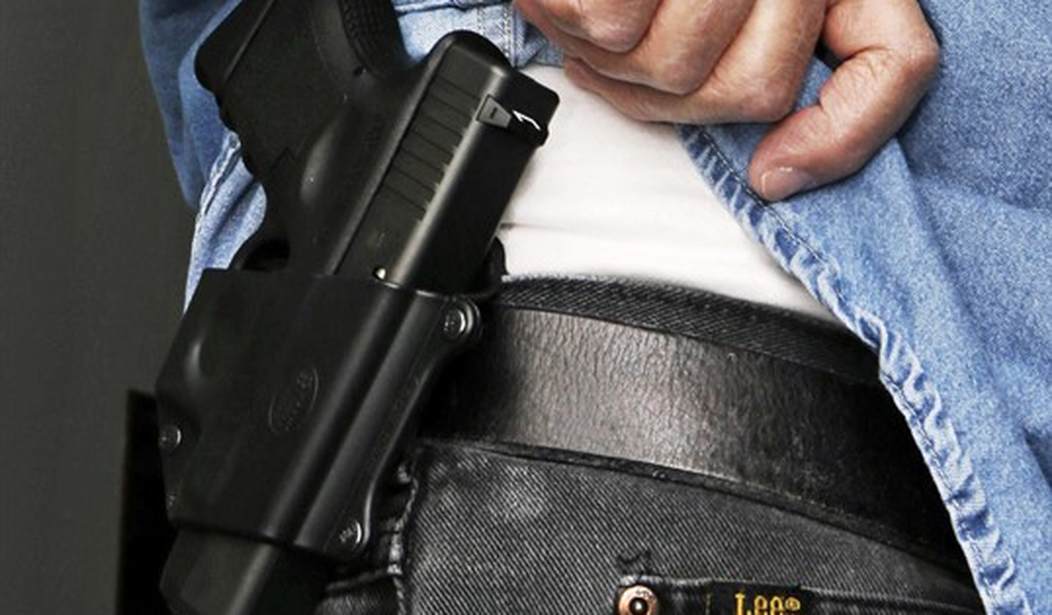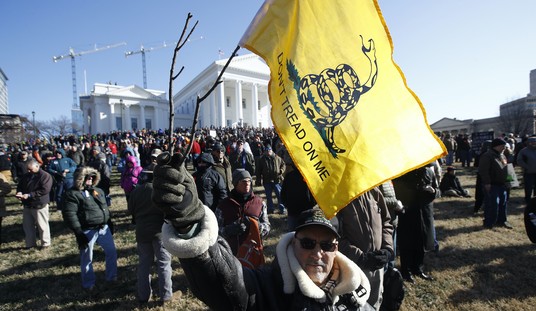A federal judge in Washington, D.C. has once again dismissed a lawsuit challenging the District of Columbia's ban on concealed firearms on public transportation after ruling that the plaintiffs lack standing to sue. According to U.S. District Judge Randolph D. Moss, a Barack Obama appointee who's served on the bench since 2014, it doesn't matter that the only thing stopping the plaintiffs from carrying a concealed firearm on the Metro rail and bus system is the fear of prosecution. Unless and until they can demonstrate an "imminent threat of prosecution" on the part of D.C. officials, the law's existence isn't reason enough to try to overturn it in court.
Moss based his decision on several earlier cases in the D.C. Circuit, which held that "a plaintiff bringing a [non-First Amendment] pre-enforcement challenge must do more than show that the government enforces its laws as written.” Moss noted that "multiple judges on the D.C. Circuit have raised substantial questions about the rule and have called for its reconsideration by the en banc court," but added that until the appellate court overturns its previous decisions "this Court remains bound to follow the rule."
So how, exactly, are the plaintiffs supposed to do that? In their complaint, the plaintiffs pointed out that according to the Metro Transit Authority, there were at least 71 arrests for possessing and/or carrying a firearm in the transit system between 2018 and 2022. That should have been all the evidence that Moss needed to conclude that the gun owners challenging the prohibition do face the possibility of arrest if they choose to violate the law, but the judge said he found the argument "unpersuasive" for a couple of reasons.
First, there is no evidence that any of these arrests were for violating § 7-2509.07(a)(6), rather than other criminal laws, or that they involved efforts to enforce § 7-2509.07(a)(6). There are, of course, multiple laws—federal and D.C.—that preclude individuals from carrying firearms under specified circumstances. It is unlawful, for example, “for any person . . . who has been convicted in any court, of a crime punishable by imprisonment for a term exceeding one year” to possess a firearm that has traveled in interstate commerce. It is also unlawful for a person who engages in a violation of the Controlled Substances Act, 21U.S.C. §§ 801 et seq., to carry a firearm in furtherance of that offense. And it is unlawful for anyone to carry a firearm in the District of Columbia without a registration certificate. D.C. Code § 7-2502.01. Yet, Plaintiffs’ statistics fail to indicate whether any of the 71 arrests were for violating § 7-2509.07(a)(6). Moreover, even in case where a defendant might have been charged with violating § 7-2509.07(a)(6), Plaintiffs fail to indicate whether the arrest at issue was prompted by a violation of § 7-2509.07(a)(6) or whether a § 7-2509.07(a)(6) charge was added only after an arrest was made. Consider, for example, an individual who starts a fistfight on the Metro while carrying a concealed firearm. One can easily imagine that the individual might face arrest for assault, see D.C. Code § 22-404, and that the police or prosecutors might only add a § 7-2509.07(a)(6) charge after a gun is found in course of making the arrest. In any event, Plaintiffs offer no allegations—or facts—suggesting that the WMATA police department has engaged in any coordinated efforts to enforce § 7-2509.07(a)(6) against any licensed firearm owners who have carried concealed weapons on the Metro system.
But Moss went even further, stating that even if the Washington Metro Area Transit Authority has been conducting a targeted effort aimed at arresting concealed carry holders who might bring their gun on a train or bus, that still wouldn't be enough for the plaintiffs to claim they face an "imminent threat" of prosecution for doing the same thing.
That laws are generally enforced is presumed. But an average of 14.2 arrests per year (71/5), throughout theentire portion of the Metro system located in the District of Columbia, hardly suggests that Plaintiffs face a credible threat of arrest or prosecution. In short, there is “no basis to distinguish the plaintiffs who, fearing prosecution, decide not to bring their handguns on a Metrorail train or Metrobus from those in Seegars and Parker who, fearing prosecution, decided not to possess pistols at all.”
The Seegars and Parker cases were precursors to Heller in challenging D.C.'s ban on the sale and possession of handguns, and the D.C. Circuit Court of Appeals' bizarre standard on standing allowed the now-stricken statute to remain in place for years longer than it should have given its clearly unconstitutional nature. Now the same precedent is being cited by Moss to keep Metro's gun ban in place, at least in the District of Columbia.
You shouldn't have to be arrested in order to challenge a law's constitutionality, but that's essentially the rule in the D.C. Circuit Court of Appeals. Technically, you may be able to argue that you face an "imminent" threat of prosecution, but how exactly one is supposed to prove that is an open question that even the judiciary doesn't seem to be able to answer. As a result, D.C.'s ban on lawful concealed carry on public transportation has survived a legal challenge, and it's going to be awfully hard to pursue a lawsuit unless and until someone's been placed in cuffs and formally charged for exercising their right to bear arms in one of D.C.'s many "gun-free zones".








